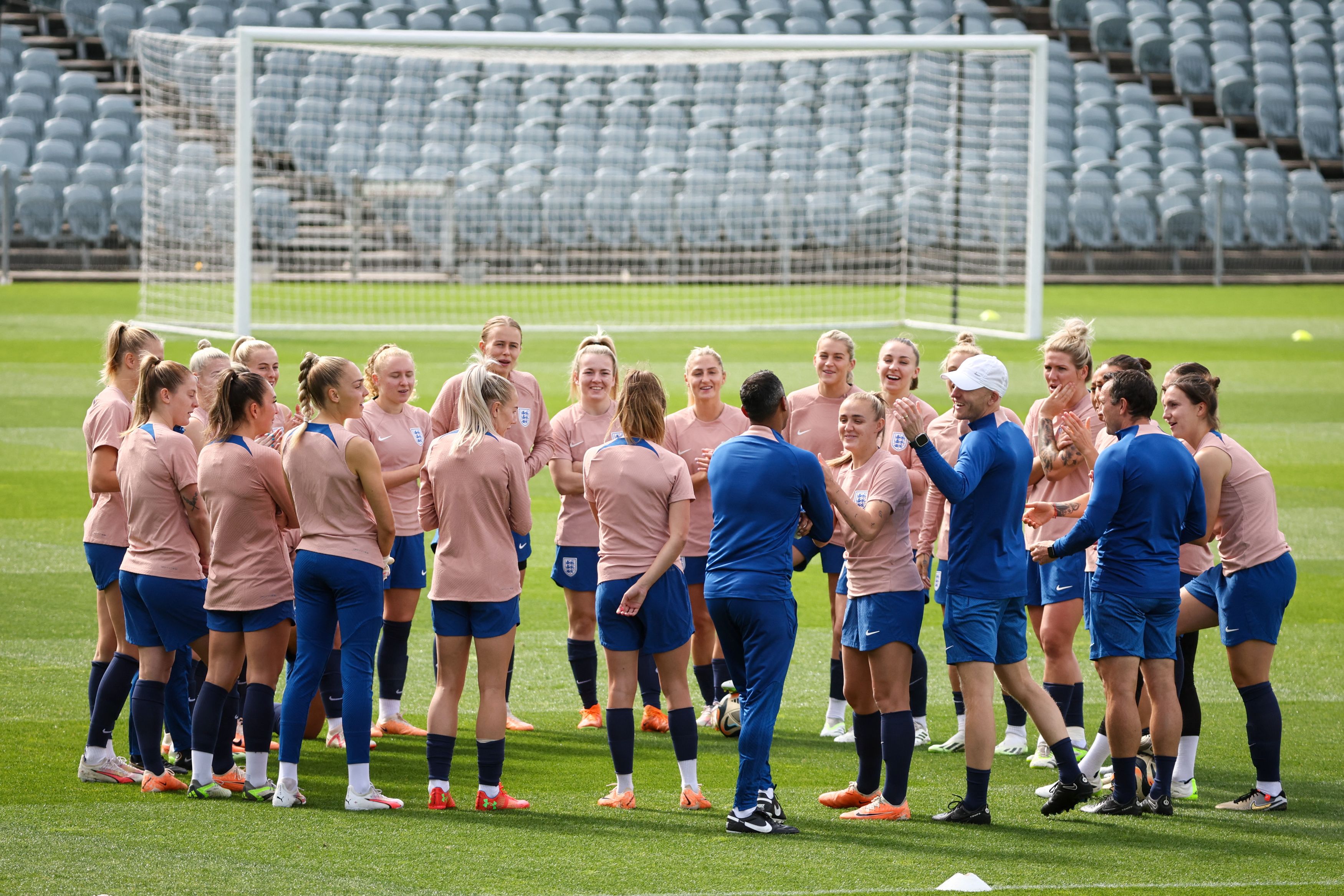The Lionesses are ready to roar (and they’re even good when they’re bad)
Australia should watch out, says veteran sports writer (and former girls football coach) Jim White. In all his years covering sport he’s never seen anything like the Lionesses. This team has captured our hearts, and have the heads and feet to win – even if they’re not playing that well


About 15 years ago, when I was chairman of the junior club where my son played football, we decided to start up a girls’ team. In truth, it wasn’t our idea. We were approached by a dad whose daughter was keen on the game, but couldn’t find anywhere nearby to play. That year we were very pleased with ourselves when we managed to recruit half a dozen other girls to join our young pioneer and form a 7-a-side team.
Back in June, I went to watch the club’s annual five-a-side competition. And I was astonished by what I saw. Across the park where it was being staged were 20 small pitches, each occupied by girls teams, dozens of them, representing clubs from across the county.
Speaking to the organiser, I was told that female football has grown exponentially. My old club now has 15 girls’ and two women’s teams. On a Saturday and Sunday during the season as many girls as boys turn out in the club’s colours. This is a game that in 15 years has gone from an adjunct to the mainstream.
And what has rocket-fuelled the growth was England’s victory in the Euros last summer. When Leah Williamson lifted the trophy inside an ecstatic Wembley, it irrevocably changed our attitude to women’s football.
This was no longer a minority pursuit. This was something that impinged on the collective consciousness, something that mattered. Across the nation, suddenly every young girl wanted to get kicking, wanted to imagine they were Lucy Bronze, Keira Walsh or Alessia Russo. And every mum and dad wanted to be there on the touchline, cheering them on. Female football suddenly mattered.
Never in my life have I witnessed anything to match it in the sporting world. Sure, Alistair Brownlee winning Olympic gold has persuaded hundreds of us to take up triathlon, just as Bradley Wiggins donning the yellow jersey in the Tour encouraged us to slip on the lycra and jump on a bike – and the sight of Ben Stokes thrashing sixes had us rummaging in the cupboard for our old cricket bat. But that is nothing compared to the explosive growth of women’s football.
If anyone had suggested to me 15 years ago that Old Trafford and the Emirates would be packed for women’s league matches I would have assumed they had been imbibing on something psychedelic. Now, such enthusiasm for the sport is commonplace.
So just imagine for a moment the scale of the momentum uplift that would follow should the Lionesses add the World Cup to the Euro trophy. Should they do it, scenes of triumph will be plastered across every front page, every news bulletin will lead on their excellence and every politician will desperately seek to associate with their success. In short, they will become national heroes.
Though, for many, they already are. Tomorrow there will be close to ten million of us somehow managing to find the time to tune in at 11am on a working morning to watch England take on Australia in the semi-final. It will not be easy. In truth – and it is perhaps a reflection of the change in attitude that we can be critical rather than patronising when it comes to talking about England’s women – they will need to play better than they have so far in the tournament.
It is indicative of the change Sarina Weigman has wrought in the group’s thinking since she took over ahead of the Euros that they have advanced as far as they have largely through grit, spirit and application – rather than dazzling skill. This is a team that knows how to win when playing badly. Which is just as well.
One of the most pleasing side effects of their march to success has been the manner in which they have completely exposed the wearisome sexist attitudes that for so long dogged the female side of the game. What we have seen in Australia is that the women in the England team are superb athletes, magnificently coached and professional in everything they do.
Sure, they may not have the physicality of their male contemporaries. But that is irrelevant. What has changed so many previously sceptical minds is the practical realisation that the women’s game can be appreciated on its own merits. Comparison is wearisome and unnecessary. We are just enjoying what we are seeing: the Lionesses roaring.
Indeed, such is the explosive nature of the growth in the women’s game, there is an argument to suggest that were they to win the trophy on Sunday it would be the most meaningful English sporting victory since 1966. Bigger than the Rugby World Cup win in 2003 or the London Olympics in 2012 or the Cricket World Cup in 2019.
Not because it is somehow more meaningful or morally superior. But simply because of the number of young people it will encourage to get off the sofa, put down their devices and enjoy themselves playing sport. As social benefits go, there can be nothing more significant than that.






Join our commenting forum
Join thought-provoking conversations, follow other Independent readers and see their replies
Comments